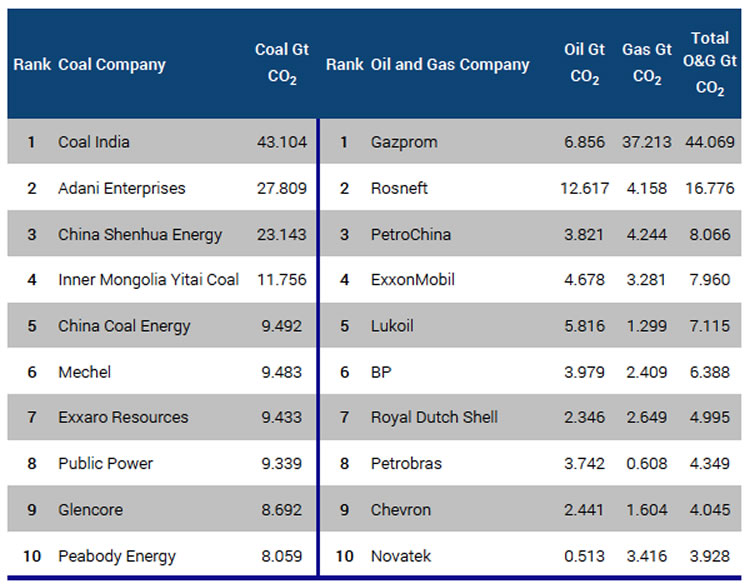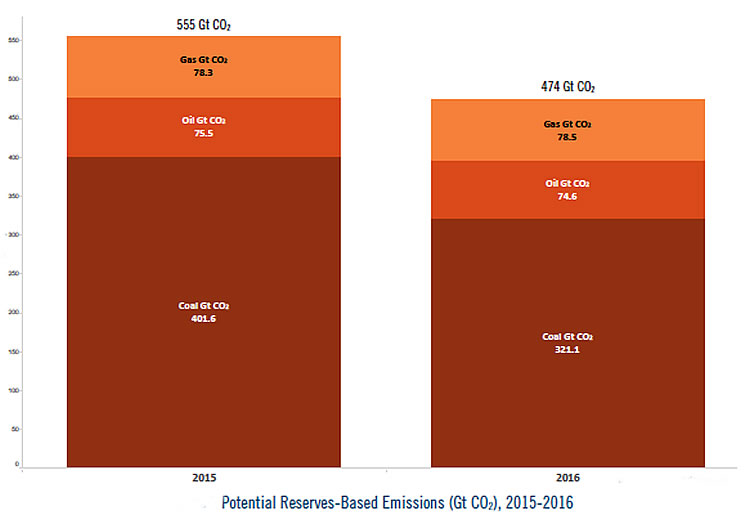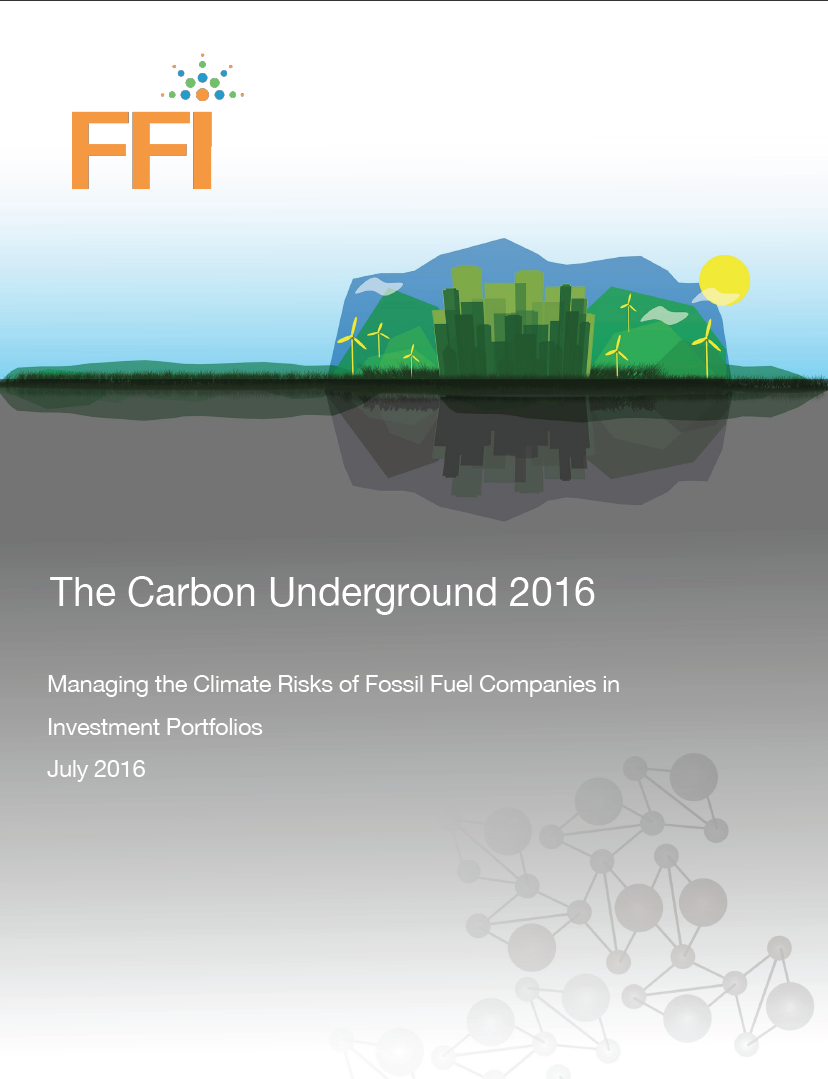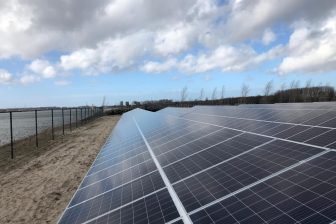
De 200 meest ‘fossiele’ bedrijven bezitten 5x meer aan potentiële CO2-emissie dan de wereld aan kan
22 augustus 2016 – De 200 meest ‘fossiele’ bedrijven bezitten samen aan olie-, gas- en steenkoolvoorraden een hoeveelheid potentiële CO2-emissie (474 Gigaton) die bijna 5 keer meer is dan de aarde aan kan voor een maximale temperatuurstijging van 2°C. Dat blijkt uit de zwarte lijst van de ‘Carbon Underground 200’.
De fossiele voorraden van deze bedrijven zijn overigens in het afgelopen jaar wel met zo’n 15% gedaald, vooral als gevolg van het sluiten van kolenmijnen.
De Carbon Underground 200 bestaat in feite uit twee top-100 lijsten: één voor steenkool en één voor olie en gas.
Dit is voor beide lijsten de top-10:

Bij de olie- en gasbedrijven staat Shell op de zevende plaats. Gazprom staat bovenaan met een ‘voorraad’ potentiële CO2-emissies die negen keer zo groot is al die van de Shell.
FFI (Fossil Free Indices) en de South Pole Group zijn de opstellers van de Carbon Underground 200. Zij willen investeerders met de informatie op hun verantwoordelijkheid wijzen.

Wereldwijd is de voorraad fossiel in 2016 overigens zo’n 15% lager dan in 2015. Dat komt vooral door de sluiting van steenkoolmijnen.
 Maar, schrijven de opstellers van de lijst:
Maar, schrijven de opstellers van de lijst:
‘(…) Despite the much-publicized decline of Western coal companies, we expect that future global coal demand (and emissions) will be heavily dependent on usage trends in China and India. While the oil and gas industry also faced significant headwinds from depressed commodity prices, potential emissions from The Carbon Underground Oil and Gas 100 declined only slightly. Looking deeper, we are witnessing a shift in emissions toward natural gas and away from oil, and an increase in production and exploration of reserves by some of the largest Russian oil companies.
Investor activity prompted by climate risk is surging. These investors have diverse objectives, ranging from those seeking to promote planetary health to those seeking to manage their portfolio risks. The fossil fuel divestment movement continues to gather momentum globally, with asset owners representing over $3.4 trillion having committed to divest. In addition, shareholders that remain invested in fossil fuel companies are increasing pressure on management to address the risks of climate change on their businesses. An increasing number of investors are focusing on the financial risks associated with stranded carbon assets and using carbon footprinting to measure the financial impact that a future price on carbon emissions would have on companies across sectors. (…)’
Bronnen
FFI, 27 juli 2016: FFI’s annual report on 200 largest fossil fuel companies focuses on investors, shows carbon emissions remain over 460% of world carbon budget
FFI, rapport, juli 2016: The Carbon Underground 2016. Managing the Climate Risks of Fossil Fuel Companies in Investment Portfolios (pdf, 35 pag.)
De volledige lijst van Carbon Underground 2016 is alleen (gratis) te verkrijgen door bij FFI in te schrijven.
Website FFI (Fossil Free Indices)
Zie ook over de ’tegenpool’ van deze lijst
FluxEnergie, 22 augustus 2016: China domineert lijst ‘Carbon Clean’-bedrijven, Philips staat hoog
Foto: Gazprom



